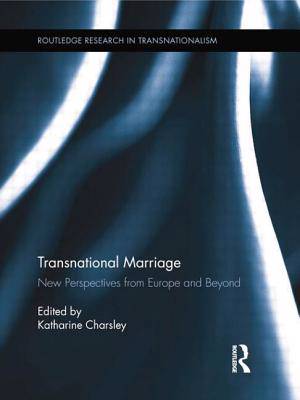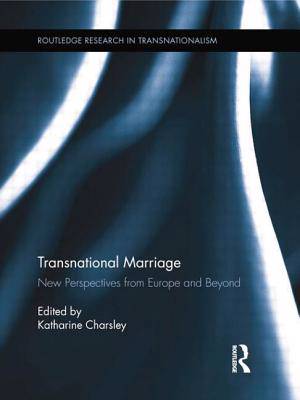
- Retrait gratuit dans votre magasin Club
- 7.000.000 titres dans notre catalogue
- Payer en toute sécurité
- Toujours un magasin près de chez vous
- Retrait gratuit dans votre magasin Club
- 7.000.0000 titres dans notre catalogue
- Payer en toute sécurité
- Toujours un magasin près de chez vous
Transnational Marriage
New Perspectives from Europe and Beyond
Description
Marriages spanning borders are not a new phenomenon, but occur with increasing frequency and contribute substantially to international mobility and transnational engagement. Perhaps because such migration has often been treated as 'secondary' to labor migration, marriage has until recent years been a neglected field in migration studies. In contemporary Europe, transnational marriages have become an increasingly focal issue for immigration regimes, for whom these border-crossing family formations represent a significant challenge. This timely volume brings together work from Europe and beyond, addressing the issue of transnational marriage from a range of perspectives (including legal frameworks, processes of integration, and gendered dynamics), presenting substantial new empirical material, and taking a fresh look at key concepts in this area.
Spécifications
Parties prenantes
- Editeur:
Contenu
- Nombre de pages :
- 264
- Langue:
- Anglais
- Collection :
Caractéristiques
- EAN:
- 9781138807433
- Date de parution :
- 01-09-14
- Format:
- Livre broché
- Format numérique:
- Trade paperback (VS)
- Dimensions :
- 156 mm x 234 mm
- Poids :
- 371 g

Les avis
Nous publions uniquement les avis qui respectent les conditions requises. Consultez nos conditions pour les avis.





